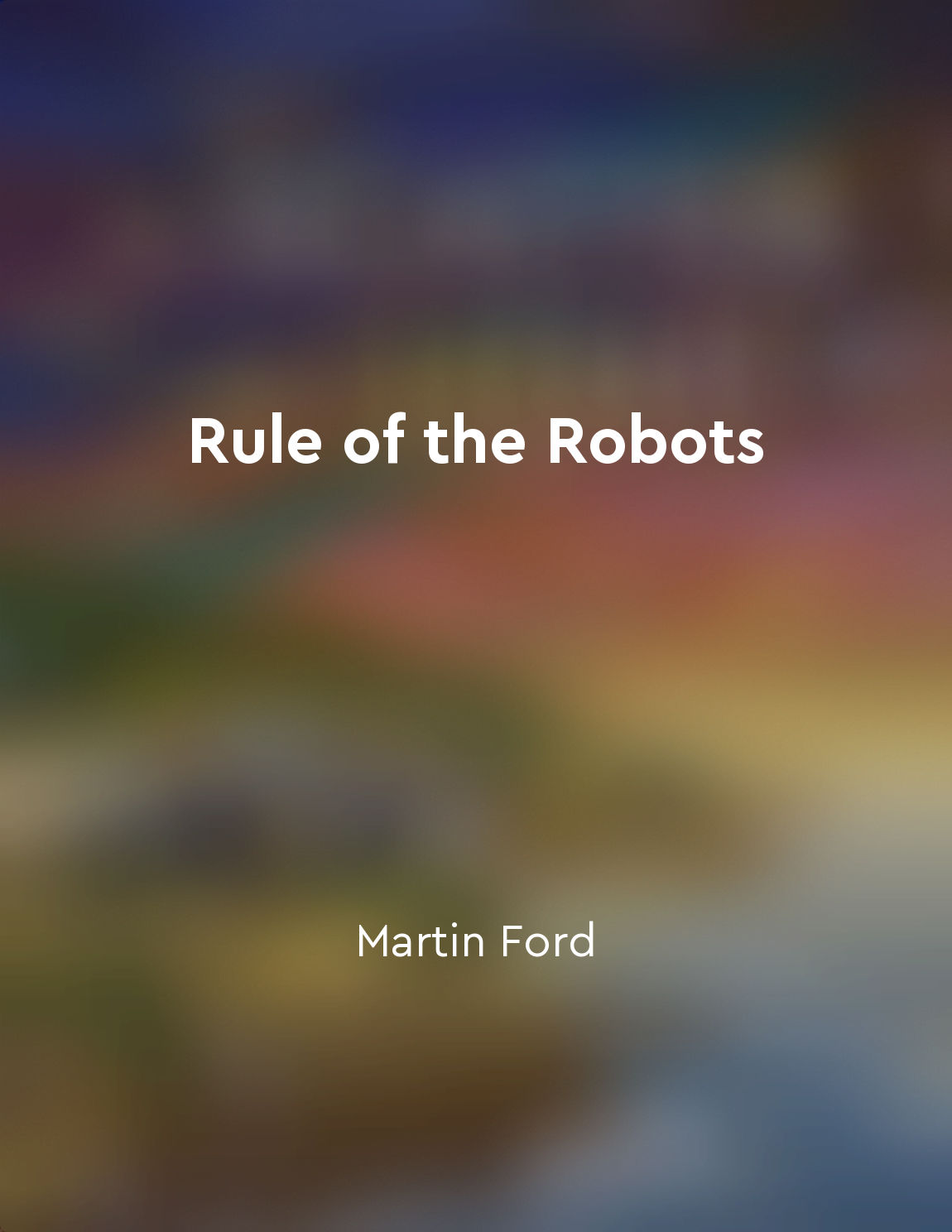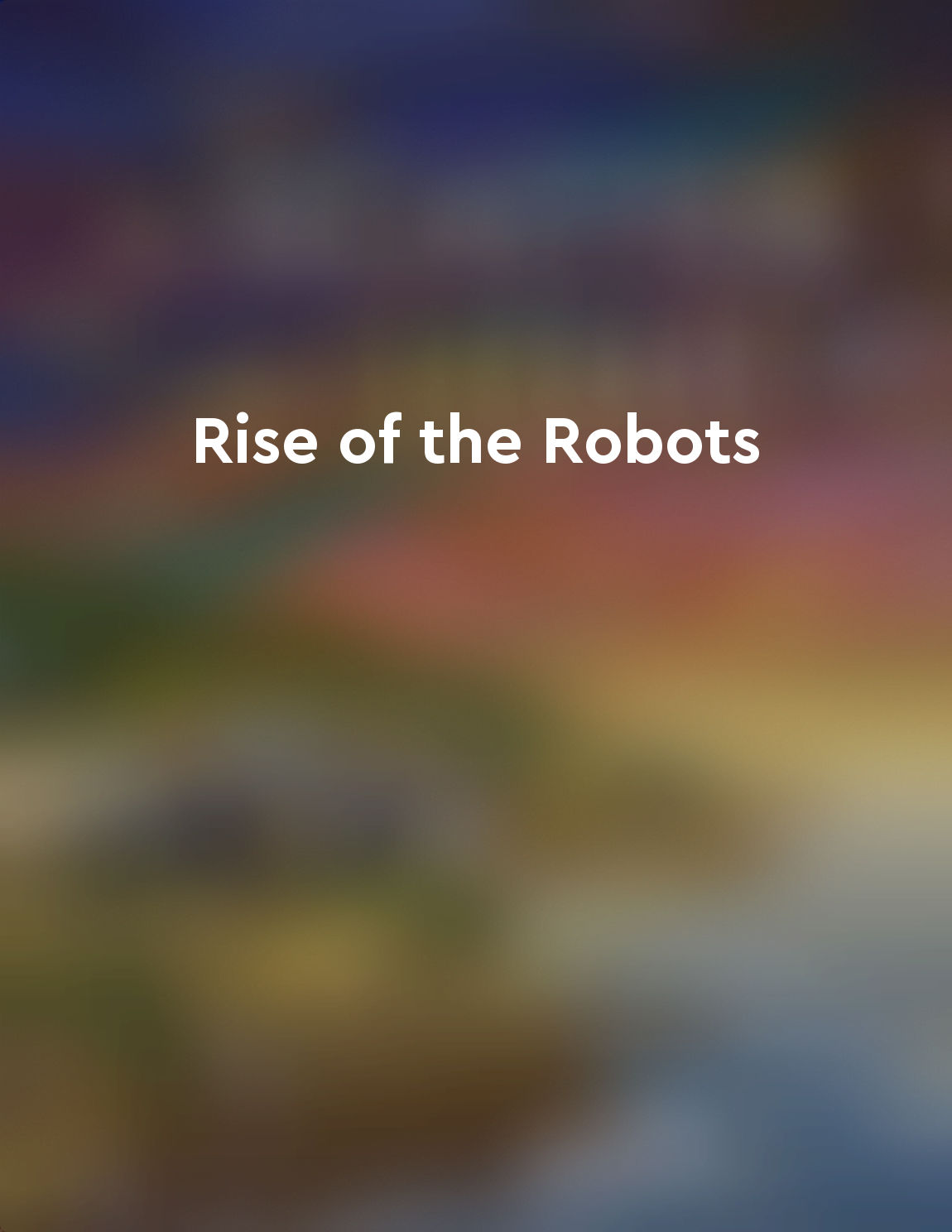The automation of jobs is creating a growing divide between the rich and the poor from "summary" of Rise of the Robots by
In today's world, the rapid advancement of technology is reshaping the landscape of the workforce. Automation, driven by artificial intelligence and robotics, is revolutionizing industries and transforming the nature of work. While this technological progress brings unprecedented efficiency and productivity gains, it also poses a significant challenge to the traditional employment model. As machines become increasingly capable of performing a wide range of tasks, many jobs that were once done by humans are now being automated. This trend is particularly evident in sectors such as manufacturing, transportation, and customer service, where robots and algorithms are taking over repetitive and routine tasks. While this shift towards automation has the potential to boost economic growth and drive innovation, it also has far-reaching implications for the distribution of wealth and income. One of the key consequences of the automation of jobs is the widening gap between the rich and the poor. As machines replace human workers in various industries, those who own and control the means of production stand to benefit the most. The owners of capital, such as technology companies and investors, are able to reap the rewards of automation through increased profits and higher returns on investment. On the other hand, workers who are displaced by machines often struggle to find new employment opportunities that offer comparable wages and benefits. This growing disparity in income and wealth distribution is exacerbating social inequality and economic insecurity. The rise of the robots is creating a two-tiered society, where a small elite class enjoys unprecedented wealth and prosperity, while a large segment of the population is left behind, facing job displacement and financial hardship. This divide between the haves and the have-nots is not only a moral issue but also a potential threat to the stability and cohesion of society. As automation continues to reshape the workforce and disrupt traditional industries, policymakers and stakeholders must grapple with the challenge of ensuring that the benefits of technological progress are shared equitably among all members of society. Addressing the growing divide between the rich and the poor will require a concerted effort to reevaluate and redesign our economic and social systems in ways that promote inclusive growth and opportunity for all. Failure to address this issue could have profound consequences for the future of work and the well-being of society as a whole.Similar Posts
Trade unions play a crucial role in protecting workers' rights
Trade unions play a crucial role in protecting workers' rights by acting as a collective voice for employees in their interacti...
Liberal education is worth defending
A liberal education is not merely about acquiring a specific set of skills or knowledge. It is about learning how to think crit...
The future belongs to those who can harness the power of technology
In a world where machines are rapidly taking over tasks once performed by humans, the ability to leverage technology is becomin...

Businesses must invest in workforce development to stay competitive in a digital world
In today's digital world, businesses face intense competition and rapidly evolving technology. To remain competitive, companies...
The automation dilemma requires careful consideration
The automation dilemma is a complex issue that demands thoughtful reflection and analysis. As technological advances continue t...
Ethical considerations should guide automation design
The design of automated systems should be guided by ethical considerations. This is a fundamental principle that must be adhere...
US companies like Google and Facebook have massive amounts of data as well
US companies like Google and Facebook have massive amounts of data as well. These companies have access to an enormous quantity...
AI technology is advancing rapidly
The rate at which AI technology is progressing is nothing short of astonishing. It seems that every day brings new breakthrough...

Embracing technology while preserving human dignity is a delicate balance
In a world where technology is advancing at an unprecedented pace, the question of how to integrate these new innovations while...

